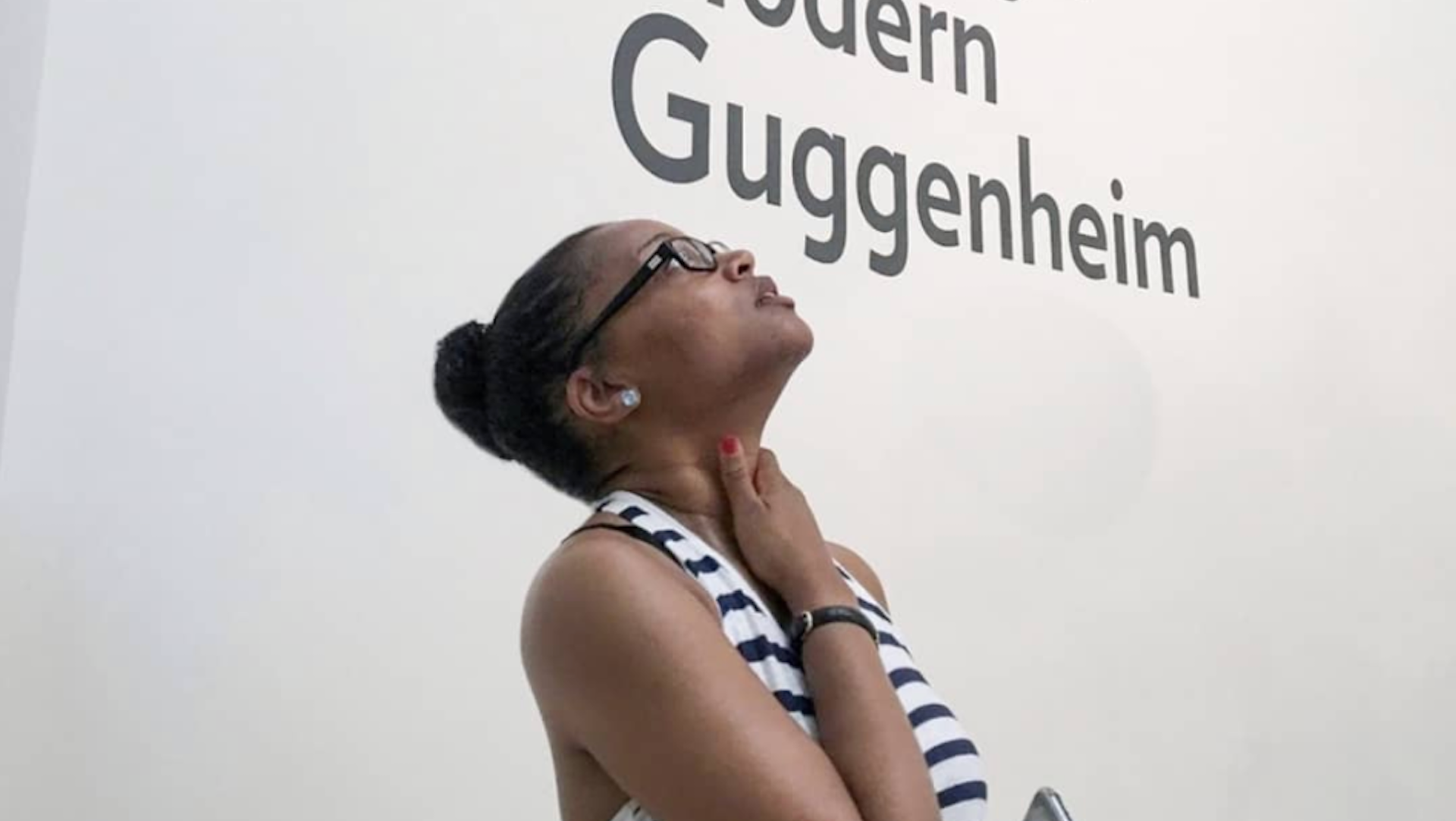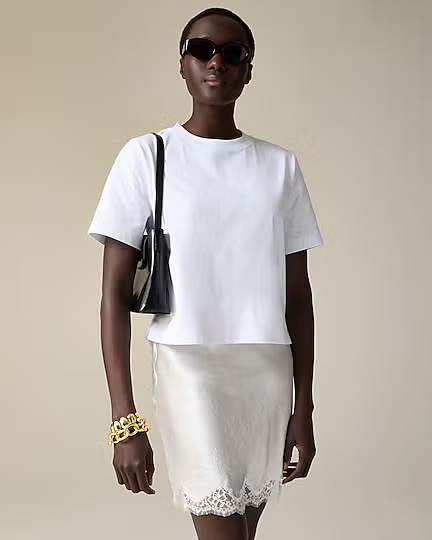
The Guggenheim’s first Black curator Chaédria LaBouvier is calling the New York City museum out for not acknowledging her historic feat last year when she became the first Black person to curate a solo exhibition inside their halls.
And it just so happens LaBouvier called them to the carpet as the museum attempted to participate in Blackout Tuesday, a day created by two Black executives in the music industry, urging companies to call out racism and discrimination as millions around the world are protesting police brutality after George Floyd’s murder.
After The Solomon R. Guggenheim Museum tweeted that they were “observing Blackout Tuesday” and standing “in solidarity with those demanding justice and an end to racism,” LaBouvier replied in her own tweet: “Get the entire f-ck out of here. I am Chaédria LaBouvier, the first Black curator in your 80 year history & you refused to acknowledge that while also allowing Nancy Spector to host a panel about my work w/o inviting me Erase this shit. Please RT.”
She continued, “This is the same museum that made up an IMAGINARY designation of ‘first solo Black curator’ b/c they were too afraid to admit that they had not hired a Black curator to lead a show in 80 years and erased me and history in the process. They are full of shit.”
ESSENCE reached out to a rep for the Guggenheim, who said in a statement: ” Chaédria LaBouvier was the guest curator for the exhibition Basquiat’s “Defacement”: The Untold Story, presented at the Guggenheim in 2019. The museum invited Ms. La Bouvier to guest curate the exhibition in an effort to examine a painful event in the history of our city and the United States, as well to support and highlight her important work on this topic.”
“The exhibition was one of the first programmatic efforts for the museum to confront its own role in our nation’s patterns of injustice, an effort that we are continuing to work on with a critical examination of inherent bias in both the workplace and in art history,” the statement continued. “Ms. La Bouvier was supported by the museum with the collaborative spirit with which exhibitions are made at the Guggenheim. Ms. La Bouvier was prominently credited within the exhibition and its related materials, including the catalogue, where she is listed on the cover as sole author. Despite her accusations, the museum credited her with being the first Black female curator in the museum’s history. “
“Given the traumatic and difficult moment that our nation is experiencing around issues of race, class and systemic oppression, we are taking stock of our role and how we can do better as an institution,” the statement concluded. “We recognize the missteps made in our 80-year history, and are committed to doing the work needed to make our organization more equitable, inclusive, and representative of our broader community.”
LaBouvier made history last year with her exhibit, “Basquiat’s ‘Defacement’: The Untold Story” that explored Jean-Michel Basquiat’s art and activism in a 1980s New York City. It came around the same time that the Guggenheim hired Ashley James, the first full-time Black curator. Their historic feats followed Okwui Enwezor, who became the first Black co-curator of an exhibition at the museum in 1996.
The curator was vocal then about issues she had with the exhibit’s roll out, and Guggenheim’s COO Elizabeth Duggal, including not being allowed to oversee the deinstallation process, which is typically a part of a curator’s duties; having no input during the creation of a digital audio guide and playlist; and being allegedly shut out from a panel publicizing the exhibit.
In fact, LaBouvier showed up to the panel last November to say, in essence, the museum had used her.
“What has gone down is so violent. It’s so violent,” she said last year, “and it’s meant to be that way. And of course it’s an institution that condones and looks the other way but there’s also a very traceable step of how that happens.”
Duggal responded that night, saying that the panel had been planned “a long time ago” and doesn’t always include an exhibition’s curator. She also addressed LaBouvier directly.
“Your work is much appreciated,” she said then. “We do really respect and honor your work and everything that you’ve done.”















